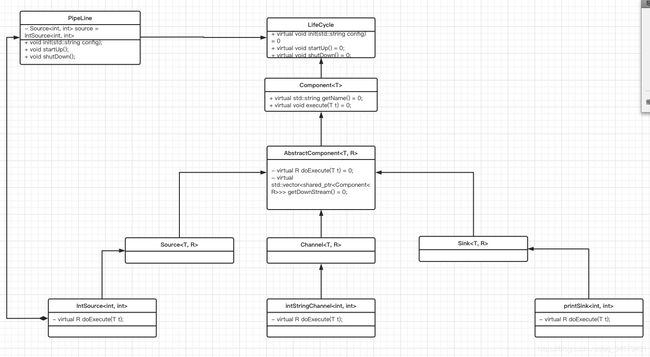c++ pipeline设计模式的实现
pipeline 设计模式的实现, 有几个小问题暂时还懒得解决
第二版已修复
- getDownStream 每次都重新生成新的对象,可以优化下
- pipeline 模式的核心是 downstream 可以方便提供, 目前写死了。
#include 第二版
增加下游可配置功能
#include 
